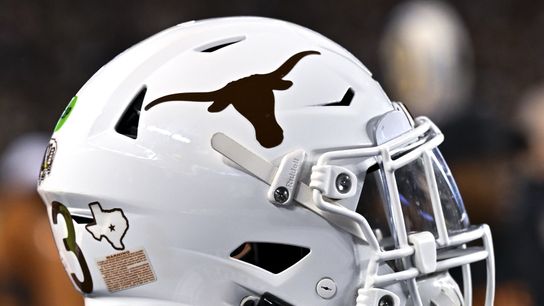Last month, Texas athletes made national headlines when they announced a series of demands for campus changes in exchange for continuing to participate in the program's recruiting and fundraising efforts.
“We aim to hold the athletic department and university to a higher standard by not only asking them to keep their promise of condemning racism on our campus,�� they said in a statement released one month and one day ago, “but to go beyond this by taking action to make Texas more comfortable and inclusive for the black athletes and black community that has so fervently supported this program.”
On Monday, interim UT president Jay Hartzell unveiled a series of changes and initiatives that the university believes will satisfy the players' requests while creating a more inclusive university experience.
"(O)ur Black students still comprise only 5.1% of the student body. And during the past five years, more than 1,900 Black students who were automatically accepted here given their outstanding performance in high school instead chose to go elsewhere. Obviously, these talented students had many college options and made choices for a variety of reasons," Hartzell's statement reads. "Equally obvious to me is that many of those talented students do not believe our campus will be a welcoming home to them, and that we have not provided enough resources to ensure they will get all that is possible out of a UT education. I have heard this from current and former students, from faculty members, and from staff members. It is clear from these conversations and from the data I’ve reviewed that we can do better. So, together with the support of other members of university leadership, I am announcing a series of initiatives today to change that."
Those changes include:
-- Erecting a statue for Julius Whittier, UT's first Black football player.
-- Renaming Joe Jamail Field -- the Longhorns' playing surface -- after Heisman winners Earl Campbell and Ricky Williams.
-- Renaming the Robert L. Moore Building, an accomplished mathematician and longtime UT professor, and also a documented racist.
-- Honoring UT's first Black graduates in numerous ways.
-- Allocating a multi-million dollar investment, to come from the athletics department, aimed at recruiting and retaining Black students.
Those changes -- some of which the Longhorn athletes asked for, some they did not -- were met with almost no opposition from the larger UT community when originally unveiled last month.
However, one change was met with a swift and thunderous opposition: changing the alma mater, "The Eyes of Texas." The song was originally unveiled at an early 20th minstrel show and inspired by Robert E. Lee. It's also played at births, weddings and funerals among the Texas faithful for more than a century.
On Monday, Hartzell said "The Eyes of Texas" will remain the school song, and that the university will "(o)wn, acknowledge and teach about all aspects of the origins of 'The Eyes of Texas' as we continue to sing it moving forward with a redefined vision that unites our community."
Though the football team has traditionally sung the song after wins and losses, it has never been official policy that all players are required to take part. Moving forward, it's expected the team will be explicit that any players who do not wish to partake can go to the locker room beforehand.
Afterward, UT players seemed appreciative and approving of the announced changes.
Linebacker DeMarvion Overshown, frustrated by a perceived lack of action from the university, announced on July 2 he would leave the team "until we are one." On Monday he tweeted this.
The announcement comes on the same day Texas is slated to hold its first mandatory team activity in advance of the 2020 season. As the Longhorns take the field for the first time, it appears they will do so as one team reading from one page.
